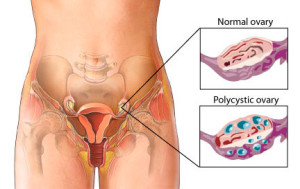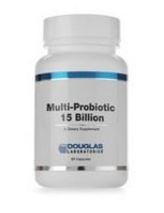PCOS (Polycystic Ovarian Syndrome), BPA, Leptin Resistance & Low Vitamin D Represent New, Relatively Unknown Health Risks
By: Pamela Egan, NP-C, CDE, ABAAHP
What Some of the More Surprising and Unknown Health Risks Facing Humanity in the 21st Century?
Polycystic Ovarian Syndrome (PCOS)
Some of the newer research is showing that plastics are major hormone disruptors. Plastics are being blamed for conditions such as Polycystic Ovarian Syndrome (PCOS) which is an insulin-resistant state. There is a growing body of evidence that technological advancements, particularly as it relates to food packaging, may be having grave and unintended consequences on humans’ hormonal function.
BPA (Bisphenol A) and Dioxins Disrupt Hormone Function
 Every time you microwave a lean cusisine or TV dinner, the heat from the microwave radiates the plastic, releasing BPA (Bisphenol A, an ingredient found in Polycarbonate plastics as well as epoxy resins) and dioxins, both of which disrupt hormone function.
Every time you microwave a lean cusisine or TV dinner, the heat from the microwave radiates the plastic, releasing BPA (Bisphenol A, an ingredient found in Polycarbonate plastics as well as epoxy resins) and dioxins, both of which disrupt hormone function.
Ask yourself when was the last time you were in the grocery store and observed grape juice being sold in a glass bottle. Everything is packaged in plastic these days! Baked chickens bask in plastic containers under heaters in the grocery stores. Restaurants cover hot casseroles with plastic wrap. Milk sits in plastic under grocery store lights in coolers until someone buys it. Cases of plastic water bottles sit out in the sun all day gas stations and thrift stores, not to mention your car! Some people bake chickens inside of a plastic bag! Many microwavable junk food treats RECOMMEND in the directions that the person about to EAT the food contained within the plastic leave it wrapped in plastic while microwaving it!

This author isn’t going to name names, but if you’ve ever been to the grocery or eaten prepared foods you should be well familiar with those products and brands being mentioned herein.
Electromagnetic Radiation
In addition to plastics, pesticides, electromagnetic radiation from computers, cell phones, tablets, electronic notebooks (trying not to use brand-names), et al are also major hormone disruptors.
Leptin Resistance
Leptin Reistance is also fairly new, and a significant health threat that far too many women remain unaware of. Leptin is a hormone that acts in the regulation of energy intake and metabolism. Leptin levels can be easily checked via a simply blood test that can be performed at virtually any diagnostic lab (ask your doctor or nurse practitioner) to indentify whether or not one has leptin resistance.
Vitamin D Deficiency
Vi tamin D3 is a hot topic since the majority of Americans are vitamin D3 deficient. Vitamin D deficiency is also a major factor in obesity, insulin resistance, the development of Type 2 Diabetes and about 50 or so other major diseases and illnesses, albeit in many cases science has declined to issue a definitive statement of causality despite overwhelming evidence of a causal relationship between low levels of vitamin D and an increased likelihood of developing any one (or combination) or the four dozen-plus illnesses, diseases and conditions for which indisputable evidence exists linking an increased rate-of-diagnosis with insufficient levels of serum 25-hydroxyvitamin D in the blood of diagnosed individuals.
tamin D3 is a hot topic since the majority of Americans are vitamin D3 deficient. Vitamin D deficiency is also a major factor in obesity, insulin resistance, the development of Type 2 Diabetes and about 50 or so other major diseases and illnesses, albeit in many cases science has declined to issue a definitive statement of causality despite overwhelming evidence of a causal relationship between low levels of vitamin D and an increased likelihood of developing any one (or combination) or the four dozen-plus illnesses, diseases and conditions for which indisputable evidence exists linking an increased rate-of-diagnosis with insufficient levels of serum 25-hydroxyvitamin D in the blood of diagnosed individuals.
Vitamin D deficiency can be identified by way of a simple blood test, and those suffering from inadequate levels of the nutrient can correct the deficiency through safe sunbathing, or even better, a high-quality and high-potency vitamin D3 supplement.
The reason most scientists believe such a vast majority of the entire population is so dangerously low in vitamin D has to do with the fact that human civilization has evolved to the point of spending the vast majority of time indoors, where the sun cannot make contact with skin, initiating the process through which vitamin D is produced.
On a side-note, anyone seeking to prevent or reverse vitamin D deficiency through the use of supplements should make sure the supplements contain vitamin D3, or cholecalciferol as opposed to ergocalciferol, or vitamin D2. The reason is that the former is far better absorbed and processed for use by the body than is the latter, the usefulness of which as a human nutritional supplement is the subject of much heated debate.
Pamela Egan, NP-C, CDE, ABAAHP
Egan Wellness and Anti-Aging Clinic + Egan Skin Care Spa
1116 W. 21st Ave.
Covington, LA 70433
985-892-3031
Areas Serviced: Covington, Mandeville, Madisonville, Abita Springs, Slidell, Goodbee, Lacombe, Folsom, Franklinton, Bogalusa, Pearl River


